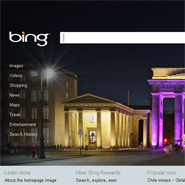Digital media exposure enhances luxury brands and drives purchase behavior even if consumers don’t click on ads, according to a study on SEM, SEO and online display advertising released by iProspect.
Consumers are more likely to visit a Web site in the future simply by being exposed to digital media properties such as online display, organic or paid search. Luxury marketers need to understand and fully embrace digital media into their strategy, according to the study.
“For luxury retailers, where brand cache is a core element of customer consideration, this finding is key,” said Misty Locke, president, range online media and chief strategy officer at iProspect, Boston. “By utilizing organic with paid search to increase favorability of the brand, and display media to encourage consumers to visit their Web site, luxury retail marketers should test to find the unique marketing mix that produces the best results.
“When it comes to the likelihood to visit a retail brand’s Web site, we found impressions of paid search results produce the greatest brand lift at 75 percent and that online display ad impressions follow with 58 percent,” she said.
“It is interesting to note that online display contributes more than five times the brand lift within the retail vertical than it does within the aggregate findings 11 percent.”
iProspect is a Boston-based search engine marketing and interactive agency.
Results
The study focused on organic search results, paid search results, and online display advertising across 15 brands. It spanned five vertical industries including retail, insurance, banking and financial services, software and hotels.
The study covered brand favorability, likelihood to make a purchase, likelihood to visit a website, and brand trust.
iProspect’s study showed that a brand’s favorability is boosted through exposure to digital media.
Paid search has the greatest impact on this metric, in both isolation and when combined with other digital media types.
Paid search impressions create a 28 percent lift over all, alone, but when combined with organic search impressions, the metric is boosted to 40 percent.
“Choosing the correct mix and applying your marketing dollars to what makes the most sense for your brand is something that should be carefully weighed and strategically planned,” Ms. Locke said. “You should also measure your success using multiple metrics, not just bottom line dollars or ROI.
“Programs with a lower ROI sometimes drive a drastically larger number of new customers, once you take into account the lifetime value of these first-time buyers, those under-performing programs suddenly have much more value and play an important role in your marketing strategy,” she said.
The study also showed that exposure to digital media influences consumers likelihood to purchase products.
Paid search generates an increase of 44 percent in its own but when combined with digital media, organic and paid search impressions can see an increase of 73 percent.
The largest increase can be seen by combining organic and paid search impressions, producing a lift of 95 percent. This doubles consumers’ likeliness of visiting a Web site in the future.
“Consumer segmentation is key,” Ms. Locke said. “There are two specific types of consumers: those that are already loyal to your brand and those who are new and aspirational.
“Having two well-planned strategies that adhere to both consumers will be essential to the success of your brands,” she said. “A major pitfall seen is not selecting the correct marketing mix.
“If you are an ultra luxury brand, it may not make sense to place ads on sites that don’t speak well to your demographic’s behaviors such as eBay and Craig’s List,” she said.
{"ct":"4ojUhDtzsJ0SEIfN6nrX8wXvu1XCbur\/XiVh5eVYtA1wvWgVzXK3lxRMP81htXKgqlOtAVYUsHwsRqLHW9l1JuQ+MxnPmGyJuSt4JDI+dBG3xufdu+\/B9vjkqXNa5Bypd\/+LWY9\/17N7DlEljMY+EsxhGqZvJr0DInvUbTRscB8TxL7GjpVybMlNn4leMCqt1dGSSwB5KSajF8ttZZHg7FMZbnD83iq978N1k+ToFLzgiX3I\/PyOW6cV6TUbfwUlXxp4ZNd0vtLCzjEcsPFACR21vHMh3cxC46ZHBL2PxEwFR9FnfsLh9HwU6DJj+Y+Za3USY+Pr7fJuykLMlCqKumyuo+csnnTko3pQS92l52avFDP2ujMKZNYj5IoDhFGlpxylzlKgxUD\/hqt8GZseHQJvWKdATx1TZvVO8hCmKi+DrigBuQ6PnLFFGgxn0dd4KySuGGHFkWVO0+cf8R5N4HWIpbYs5LNeIwFk\/8UqNrOYQJrE7NDexg\/X+BX5D0\/6cE5\/piSoCajH+jIgAWoRFW6eawHx0fxwffUH5AsOK8zOmAlRpsd4LRSOr2XYcVE8OHfzG3n7uw4z0D7Mohi92+y1aIoEkdkz3C3s4R5J0wgLGyOjlIJc+iAs62Jx\/cdobKjmizB8\/CHwt\/P\/4uhHJtMzolOwwJVS0EdzhxUvNhEQoYz5XD1r6QqOTSc3rc+DoVu35lNBdQzmuvR6K1Kk\/rZ8cdx4UHgylbXOV3c2JlHe2\/VIf0ad9\/gch6rtjmkyaw6Bk1yPhSzZpGtCiaMg5+0WSu18wCMpN4gfDsFvTJQOagdyzQ0LKrFpnwybLlwstQ\/Mwt3qBKSbDjuxxTf78U4pLqDkfVteQCz\/808Tdco1\/9tMHOV6c+pBHcMtl0gWRtCNq271jwv7nB90sEPmvbvw8BqotUQXf+T\/YpSrHzZYZZsDqpzDF11YLSHAzZAIPEbhPjFWw28yfDxsn7qT6L08ATOfWxrD7mkrq33fY\/1VO9L0I2Aa\/dTcrm2w48g7T9\/eGlXmJxc\/M6js4RMuvD1JqsBps5k85W5PhVo48IoCpxczTLAv7JjbkXMrGcBm8ipwCpcN6E8PxMI4DnQrgj03ngNEtO+eZEen1xIASlmqgNeO3OIuH8aXhPenn2HRbZDFkN5vfOhLZv4hb+yBsFSoHocbPHjgPUMy\/Ybr62bAdfigyrfgf8Ll0T7OREI+T4K\/zN4AapizOXrGdR9lT3eH\/r3CPG7p2t\/izHp5oio7LjX6PEcnL06ZAziZFbgmgp1ueZS7tJai9IVo8Ksyu5qydDJYtb+fADS5XeRoi0WsbrFVxFGdA94h4fm8TjZ8Ss9meh7ueWeePx9w0UNfcL1IPn\/MYrEWaNVa3VvzjRkxrLaaQzDVlxa\/uuQ5vLDP7S2vOZ+AT3cL+Y6\/wh+0tFAQKcb8Nm3gSjH+2llaN5HH+t\/MMI9H7eja3FYNHVfniJda8DZXN1aXZFUqNf7D7U82sLzKbqYgiF\/VPNaS0fsd0W8J5JB6KKFS09OHHntn6\/CskZ2eaY4qr3dFZUZs5NoWCG4uYzkG0UcstliUaccIwJEypOgEadcI4sndrNliePEfE8ZHRtt+uw\/BT4biXbuj5m84PwO1kv1NSReCJVNEv3UOqkFotgyN7SvtAtH5HzblpJMWcP1ghZ4P3oZL3\/\/jSYOHj1iaN2eeZBc7E3totVqSqi8T\/DeVGwof5loUQPaeP1yWHOmR6vJHK+vP7\/uomHomWIV1GpTJLMzstW9zDm7z5o+7FVKm92quwaolo+BBke0Zc4Kew9AysxtqlY4HYrayR5lMwrogfvKGa\/KRVAL01uE2b7f6Lw3zTPKaQUhmY4cFzkg0IJxIHC3gQfxKaNSslQzVymR7kNU1t6h6s1UU8XpSqMFuXGHNXpwvyU8xyrlQrHNwxuKldNgPab6cE65hq0kOWY5xtKfwYbXa\/3Jra7yGOVt2ha1u2eGzWyVfCWDgF\/PNmv7DqxhC1Ru3qfTfbIkuEaRN4246hTYml6xyzdQu8CMQoGMELXV9VVngkExbQjxF9IGv+vafe73womriyzokUWjA6tnf5\/\/FAarT13g\/ZQ4L8SrFRXSjfbSPWKU5xuI6j5YSUhElIGXQnJbp8RzD9TSOolHEcyfwgy7xGOptFfOS4t22wQQozTpbvN8bLtww8dZBmGbhAQ10VPVHnMkWvjI29mXO1jqinDxj6Hl8sNeQuYUF5XUyFRYDVPXQY6FGCxEyhYb3l\/EaEX74WqqVnHYVsK2G1LzcQwKc5YKohrk8LGTUZ2UgEAAfldpBMJrqiIjbgVT1dHvsdqxkffYwBDuAXn7CVzbKo5hcMnNT81wfxJklcfJTWffSAuvFT0R1mHvOETAG7JS\/hTs8x0IFObMc1eaVuUnCdgEiTagEWU2qwXMH6KA+t7vI97gtoGlHSAP8hu1DS7fYRzRBlMhApioSYuv0gWKaxj7i5i21LfqaA2V1AkZsdBN\/bzOnu6WhdjQhywDmCXydFsOUUE7wxBYYxfKxwavUBwjCEJg9TVClFGNIVGum\/6Qh0ZuCeX8o3QZXc7poXSbFdWez1LBRzltWgk2S1i0zXnTf4d+xiP8WWmwLEcHMYS9SmfbyPZjhhB8DTiN6SjQ7egEHRDcRkav1\/7Qpw6WVA9ieLmrEjr6NFgajLtQOL6\/43jRoHwd3NgaaAbyi2avrDYoaoISJ6+CnTo57xQXk5PeNGGLNS549ixv0WuB6Pq7CANxyKRAykd2SSU5g8Tm1xY29x57bwGBIDwigX8tv0NcCizGgw7mqITQSsm893KH9pFymfj5vXPyRZjWLGe0Ve5QPt3SbF9zn3RceAMhcX6WEAWvQogLkJR\/B1Nu3LfwwV3B9fMib5nS1rbyQp+WtlehDJ3g6ed2ZoD0qY4MNMit\/IvDjyqTMBvE6OTKLqn9XerP4DRlmulxRiTLWqUMvrUST6iEJ9OsmEc2Xggn5j8615QPDa4udZCMvqgMdreD2NHIffbfBmNmvRfp3hZZaHDs5jzzzPwpsWucKaE779iHqOzVVTUnIoXNjPbApFDJYgJ0K43ZHd1M6bl8utuffOybUxeYwuUTOP\/IyQkc9LUsQHrcm\/Thiz2rpTfItuRHXyWxAhtxqWSiGokP378di320fgzyir5HbwK68tthesKXYichmmztQE23hcjBfHiaPq+SPdfHOF4b0\/2fCX8iSA7j\/BZS\/GYjK7QCwV3b6geukxfvFGru9Cu+60WXLGTM02Z7zxyzZUwCWrXNF\/bbIiB6MA4KnJEmJvHHMZvnxYiweQpT783HFaYgU26c0201MZxi\/WOMb7Lx\/N5FmgU7WhMD3yYgdg8NQgHYpFpbCyEKDzUdv2GUj80tzINNwfvLpuM6O\/zl5XSuDzrBn8zgt1TDtHjocPqKOpvefbXOmk23PkWzwU5nagQ4A43+o6ONfyPxtSL8tZasa\/uZmVXyHReyIFM8EzRuMx8oLusXyw2HeXKileLKDXw88bisjIQUJJkF0xbpFyiicUDSLBR1xkU5bB8IL22rgaEj2xBL6U0qoylhENfVUgft5kXfbujcQmZT4dYMJOonTxBAm7MxOFdpmjQ82ndcxoeI92Bph1hfhKHTEA3wAnj2FOALlkUTpB7bdK\/2jkmlhrQ\/F0lypyM346QoC1GbY9svmqeJw7Tz5OtvCWBSsYHlpmFGhW83P+neL+IaZ38X5rWa83AhR1xiJeZON\/CEssKtT2TIGPmGHTDRzD1mW2saj877e0z4v9hdrKAZlHYPajBOEa085M0XD8vcB2Z++t9Hcc9LA4xd6Ox2JC7kPKrmE\/WQH15VGS8MlLvDkuAGpz4fgRxD4h3LXBmJJO+R+OR+VG91TTEj2KZesKOgm2FCweL0HKdGd0iz3wrGbCLyfamuTWo7OICLcUGhuFzGLqctWlRMlSU8acxUrFJy\/Il\/rAdcNThGS1U3tLaZhjHW1sf1ptxnVSvZmgrBbUq1kjFmoIkffPJz2ioMzxJOuFH3MBxLBJGuvuceg2l1mZQhzBFffncUWehZq2ur3TMxuC8lySTYk7ir4bzitukwFNHsCRhu\/KQfkuyQDyaNdl9WtWxNHekDoX2butOrlE2HtaXhcrapE8WejNu4t1V3R\/M7FJHFXw+h9qe\/dwwLdHL5n\/gmWBz6XS4YZ\/Sn3vn7sfHLTSktoJmgfxa3gUdNxLueEUEE6FK6q59hLD+3yBoE64i3ydwo5Qc+t7px9K+M7y21kKl0ELPnO452+aB3Kt8WjffLKeaN3OHD9jxuPibRiwox2Ac+4mLt8l5m9A07W11zVeNsYt0g+jjudMd\/r535gesm0MADHb960cCvvT94flIgznTR2G+r9pS1p4uDKZL0tatQyz0ib1rV5avyoZyprbKi3MCm6fhwBCiZ2dI5Zhjdgd7+d0ujJ\/qMwvCHmAYj9QWomHxWXABK+nZnluvJLQXuzywXsSvZjXBPRbfpG1Arw6xVEQjO9Un+9hUFUig+\/Z9HWL6fUbyfS1+FTMY5Qn8r2LYNEJggBXAkSCDcEx55lmDjtd3YXfBVFvnl1mckkWZyFPWuasnFeOFMkVcK0ClrbMiBc6i56YUTk96N+STJK8GRTL\/rK7q43znyvLPWGOgK\/ENBC5R2cabA\/YP1je+8YZ0SEgfHmAYCKl4n1TyYtpoDci2FdpPT1FJs4aX0USIcFO7bgNDJaLZvPk1kG3tzIE8U9j1JzC9ogHTM6JHP4ltNS5Pl3LDDQY9VDTxc17p62zRrc60xZbWY5OtZZhhT7ZdpgjMwT1X9LGo18QD552PoPdeZbsCaE88ld\/sDwZIaFLc80TvjW4zOh1SzZBZAVSJz\/LNPoqgrLlRHsjvgqnbSfphD7pC2uffMo6YzjF3\/mlTlfPlvu2mwnaoUO0II1Kb6reXBUYBI1\/D8MaGhq+h9Kdu3y3qcUKBjeXidVny8UNUbVHes+oB0XhaAfU4+6c23VUzsktSIRy5HYwAzohb8HxbEkg\/Jd2o4JFjY2EdLBaJTsTNiTX5TewrT6WDsS7q6q1eu5TtKSIKI4eTAT0JV6F73PCFA3A46FW5lwc23QRTG8nZ3ZzG34rx9QFc\/BpMa7FM3wdXeBA\/G1AujbbjUdZx6f1ckQrhTJ5podrfecsy\/KAbtbkUA7H+lj5HX+39vytfdpOKZUXkHkMMeTAhRlp+npTBm5+CWlfWoAEfgsE9HHzYe\/QcREXtnxU62SfLIMZX2rR8o469Qlz\/ryVf66V8BtWu76+e4XlYIqFBhfF99AnJNeO40trIzRoihRlEiFpmttEQjdmiy1idC7\/sVM+AldPIxmlihhqmy88tEJiew8Gj\/axEBwPcwnFWZNf3aWxQtFdGQ33yxjT6h5JQUw86MRzGFj8z1kqqbwrqk3E\/+eRy6GQOpN5yTHxslnz6ALmN4hJwjadpFpgK7E2Xvb9JbpO7NAUS22+YidIE0eF\/PmTzOWr0VWD5olVTLcw\/ISfeiRgrK4SYiirwoVPbQJ+Hr0\/dfEPlVfKKpDBLGDLYBToqgEMLAJfe7gUKXFxJTChfaHUiAu29F747vz4GJ2b52Mi6Rz8DGVrBwxSNQ=","iv":"65c9766f9b1b2abf405491235b3007d9","s":"9943c566bac10e62"}
